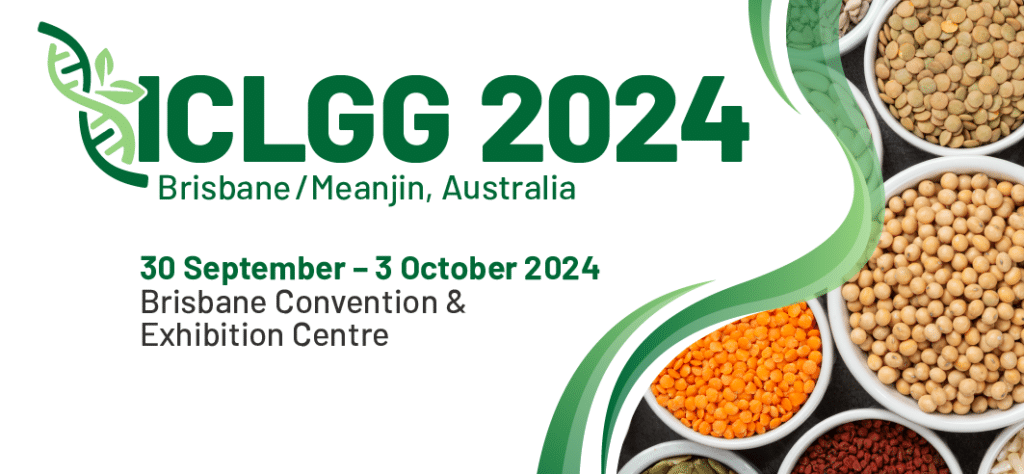Keynote speakers

Prof Douglas Cook
Session: Plant development: breeding applications
Douglas R. Cook is a Professor at the University of California-Davis. He received his doctoral degree from the University of Wisconsin-Madison and conducted postdoctoral research at the Carnegie Institution of Washington’s Department of Embryology at The Johns Hopkins University. He was among a small group of colleagues who together pioneered the use of Medicago truncatula as a model genetic and genomic system for investigation of legume biology. For the past two decades has been a leading advocate for the application of basic legume science towards pressing agricultural needs in the developing world. He recently led an international consortium focused on the of crop wild relatives of cultivated chickpea. His current research spans model and crop legume systems, especially chickpea, with a dual focus on (1) microbial diversity and function in natural and agricultural systems, and (2) mining agricultural traits from the wild progenitors of crops. Recently, Doug co-founded NuCicer, which is a biotechnology company focused on developing super-high protein content lines of chickpea, with enhanced functional and nutritional properties.
Recent work includes establishment of a large insertion mutant collection for legume genetics (https://lotus.au.dk/) and investigation of natural diversity and adaptation in Lotus japonicus, white clover and faba bean. Faba bean is a major focus area and Prof. Andersen acts as partner or coordinator in a number of international faba bean projects (NORFAB, ProFaba, IMFABA, FabuLOX, N2CROP) and coordinated the faba bean genome consortium (www.fabagenome.dk). For all three legumes, Prof. Andersen’s research group studies interactions with soil microbes, exploiting natural diversity and single-cell sequencing to decipher mechanisms and optimize interactions.

Dugald Ried
Session: Symbiotic nitrogen fixation
Dugald Reid received his PhD degree in 2012 from The University of Queensland, Australia and then worked in a postdoctoral position in Jens Stougaards group at Aarhus University, Denmark. Here he focused on legume nodule development and regulation. He returned to Australia, taking a position at La Trobe University in Melbourne at the start of 2023 where his group focuses on improving nitrogen fixation in legumes via genetics and biotechnology approaches.
Currently he is a member of the Engineering Nutrient Symbiosis for Agriculture (ENSA) and N2CROP projects where he is seeking to translate his work on nodule regulation in model species to legume crops and understand the impact of altered nodule regulation in the field. Recent work has focused on the regulation of plant hormones during nodule establishment, the interaction of plant hormones with nitrate signalling and identification of infection related genes via single-cell sequencing.
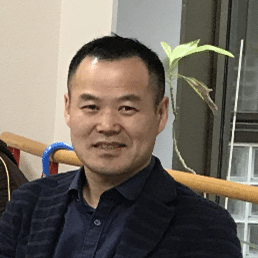
Prof Fanjiang Kong
Session: Plant development & physiology

Dr Vanika Garg
Session: Structural genomics – bioinformatics and databases
Dr. Vanika Garg is a Senior Research Fellow specializing in Bioinformatics and Computational Genomics at the Centre for Crop & Food Innovation in the Food Futures Institute at Murdoch University, Australia. With over a decade of experience analysing high-throughput genome datasets, Dr Garg’s research has resulted in the production of significant genetic resources, including reference genomes, pangenomes, superior haplotypes, and candidate genes, and better understanding of molecular mechanisms of agronomic traits and genome evolution that have had a significant impact on both fundamental and applied research in agriculture. In recognition of her contributions, she was awarded the Indian National Science Academy (INSA) Medal for Young Scientist in 2020. As an early career researcher, she has an impressive publication record with over 50 articles in leading journals such as Nature, Nature Biotechnology, Nature Genetics, PNAS, Trends in Plant Science, and the Plant Biotechnology Journal.

Prof Shifeng Cheng
Session: Evolution, diversity, and domestication
Professor Shifeng Cheng currently serve as the Director of the Plant Genomics Center at the Agricultural Genomics Institute at Shenzhen, China (AGIS), Chinese Academy of Agricultural Sciences (CAAS), Shenzhen, China. His research interest is in cereal and legume genome biology, and evolutionary genetics in high-performance natural traits like efficient biological nitrogen-fixing root nodule symbiosis in legumes (https://www.legumedata.org/beanbag/68/issue-68-legume-genome-sequencing-consortium) and C4 photosynthsis in cereals (https://www.c4phylomics.org/). With sixteen years of interdisciplinary research experience, his work uniquely bridges several areas critical for the delivery of the crop yield and protein sustainability in global food systems, spanning plant evolutionary genomics, crop quantitative genetics, and computational biology. Together with his team, he has published over 60 high-impact articles and listed among the World’s Top Scientists by Stanford University. Shifeng’s research has been published in the top-tier of journals, including Science (2018), Cell (2019) and Nature (2024, accepted) and his research has been highlighted by the Faculty of 1000. Specifically, he is currently now focusing on Watkins Wheat G2B (Genomics to Breeding, https://wwwg2b.com/), Mendel Pea G2P (Genomics to Phenomics) under the global initiative G3RP (https://g3rp.com/), in a genomics-enabled population genetics perspective.

Prof Zhixi Tian
Session: Structural Genomics – new genomes and pan genomes

Prof Lee Hickey
Session: Genomic and predictive breeding
Professor Lee Hickey is a plant breeder and crop geneticist within the Queensland Alliance for Agriculture and Food Innovation at The University of Queensland, Australia. He is an ARC Future Fellow and Director of the ARC Training Centre in Predictive Breeding. His own research group specialises in plant breeding innovation to support development of more productive food crops, including pulse crops such as chickpea, faba bean, mungbean and lentil. He has a strong interest in the integration of breeding technologies, such as genomic prediction, AI, speed breeding and genome editing. His advice for speed breeding crops is sought internationally and the technology is now adopted by plant breeding programs worldwide, which is fast-tracking development of improved crop varieties for farmers. His research outcomes have featured in >90 refereed publications, including articles in high profile journals Nature Plants, Nature Protocols and Nature Biotechnology. Lee is a prolific science communicator and his research outcomes have appeared in mainstream media such as BBC World News, National Geographic, and the New York Times. He is passionate about training the next generation of plant breeders and currently mentors 19 PhD students, while 14 of his previous graduates now work for leading plant breeding companies and high-profile research institutes around the globe.

Dr Millicent Smith
Session: Abiotic stress tolerance
Dr Millicent Smith is a Senior Lecturer in Crop Physiology at The University of Queensland. Her research is focused on understanding the physiological mechanisms that underpin yield stability and quality in grain legumes. Millicent works closely with breeders, both in Australia and overseas, to develop improved knowledge on abiotic stress adaptation and tools to accelerate genetic gain. Dr Smith leads a national research project funded by the Grains Research and Development Corporation focused on deploying novel phenotyping and genomics approaches to fast-track the development of new chickpea varieties that display lower yield loss in response to high temperature. Millicent is passionate about training the next generation of plant scientists. She leads a growing research team of 8 PhD students and has been awarded for her innovative teaching approaches applied to large undergraduate and postgraduate courses.

Marta Vasconcelos
Session: Metabolism and quality traits
Marta Vasconcelos completed an undergraduate degree in Biology at Universidade de Lisboa and a Ph.D. in Biotechnology at Universidade Nova de Lisboa and the International Rice Research Institute (Philippines). She was an Associate Researcher at the Children´s Nutrition Research Center (Baylor College of Medicine, Houston, TX, USA). She is an Assistant Professor at Universidade Católica Portuguesa (UCP), Honorary Associate at the James Hutton Institute (3-year mandate), and Deputy Director of the Center for Biotechnology and Fine Chemistry. She leads the Group on Environment and Resources and the PlanTech Laboratory at UCP. She is the acting president of the International Plant Nutrition Council and a member of the Scientific Panel on Responsible Plant Nutrition. Her group works on the interface between plant and human nutrition and promotes nutritionally rich plant-based foods for more sustainable agrifood systems. She has a long and successful track record in coordination and participation in projects dealing with legumes, crop diversification, value chains, plant nutrition, and genetic resources.
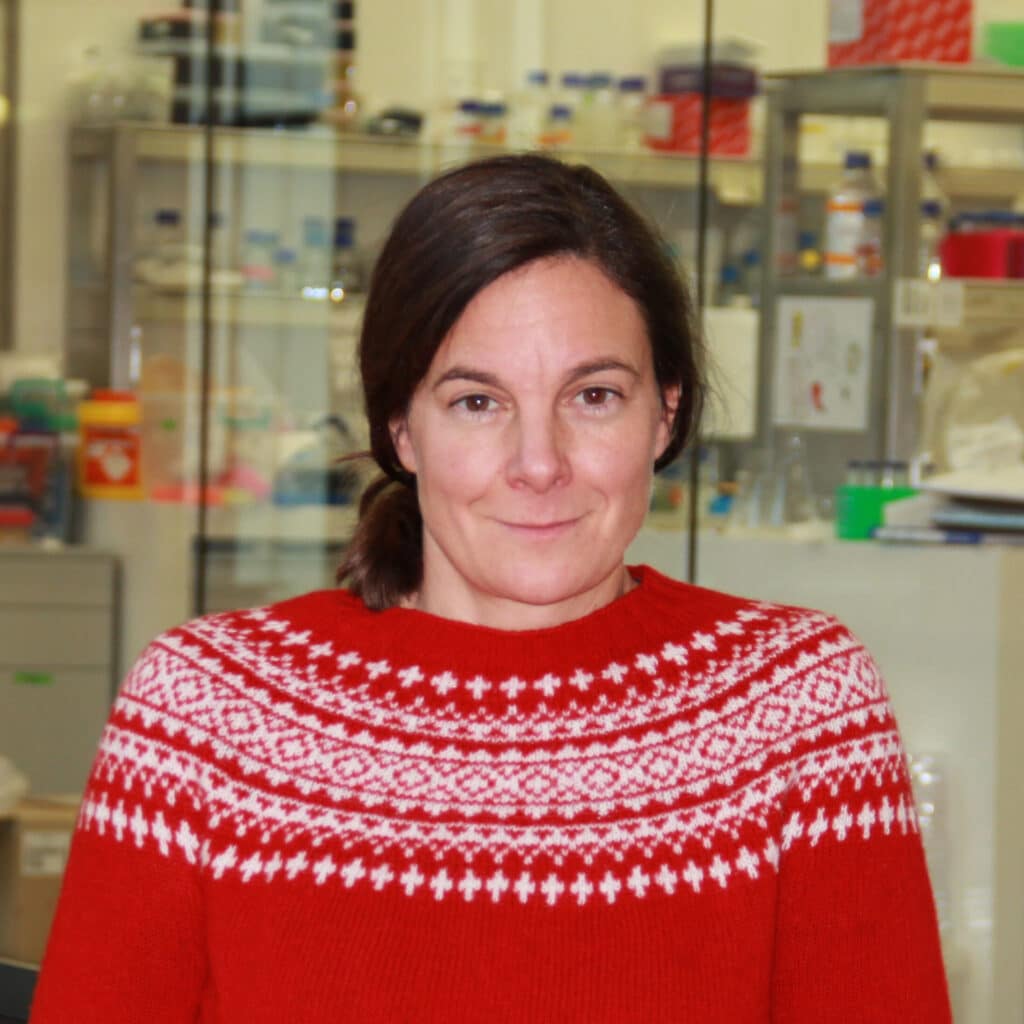
Katharina Schiessl
Session: Beneficial symbioses and microbiomes
Katharina Schiessl is a newly appointed Career Development Fellow at the Sainsbury Laboratory at Cambridge University. Her research team is interested in the fundamental question of how plant organs of diverse forms and functions can be generated. Aiming to advance our understanding of the common principles that underpin plant organ diversification at cellular and molecular level, Katharina and her team turn to plant organs that are induced and directed in their development by plant colonisers. These organs with often intricate, custom-built features are commonly referred as plant galls and include the symbiotic root nodules that develop on legume roots in response to nitrogen-fixing bacteria, but also root galls induced by parasitic root-knot nematodes.
The Schiessl group uses molecular genetics and cell biology approaches in the legume Medicago truncatula which is a common host for nitrogen-fixing bacteria and parasitic root-knot nematodes. This makes the Medicago root an excellent framework to compare pathways underlying the development of lateral roots, symbiotic root nodules and parasitic root galls within the same genetic background and tissue context.
Before joining SLCU, Katharina was a post-doc in the Giles Oldroyd group. She did her PhD in flower development and cell cycle regulation in the Robert Sablowski group.
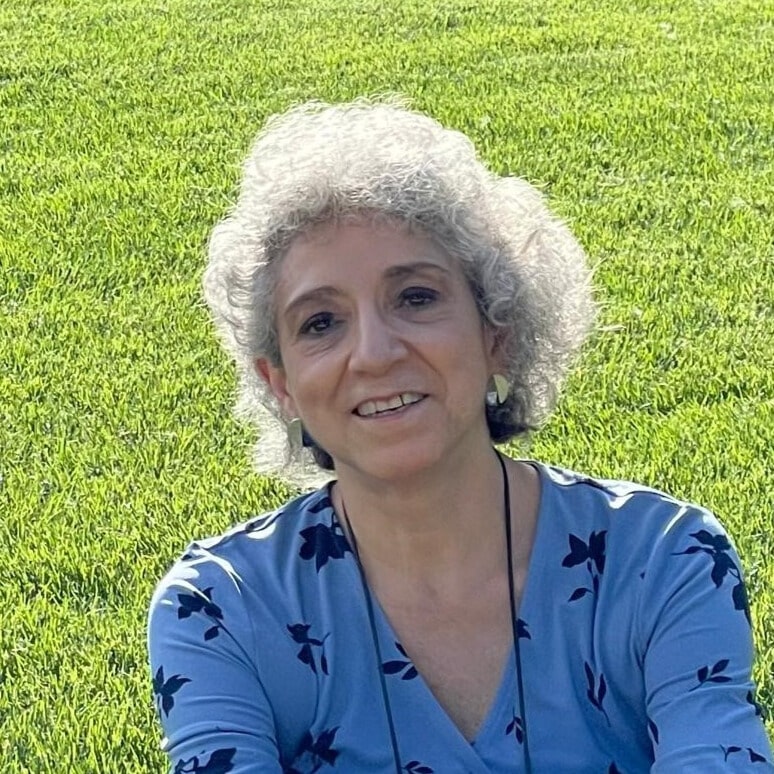
Prof Georgina Hernández
Session: Symbiotic nitrogen fixation
Professor Georgina Hernández D. received her PhD degree from the National University of México (UNAM). She took a postdoctoral position (in the biotech company BioTechnica International, Inc., Agricultural Biotechnology Department (Cam bridge, MA, USA). Currently she holds the position of Full Professor at the Center for Genomic Sciences, formerly the Nitrogen Fixation Research Center, from UNAM in Cuernavaca, México. During her sabbatical leave she performed research, as a visiting professor, at the University of Minnesota – USDA, Department of Agronomy and Plant Genetics, and at the Max-Planck-Institute for Molecular Plant Physiology. She has served as the Director of the Center and currently she serves as Head of the Eukaryotic Functional Genomics Research Program. She is a member of the Mexican Academy of Sciences and has served as its Treasurer. Since almost 30 years ago she has performed research in the area of the legume / rhizobia nitrogen-fixing symbiosis. Her pioneer work contributed to the development the functional genomics of common bean (Phaseoulus vulgaris), the main legume for human consumption in the world. Her current research aims to decipher novel common bean global regulators – transcription factors, microRNAsrelevant for the symbiotic N-fixation process using genetic/genomic approaches.
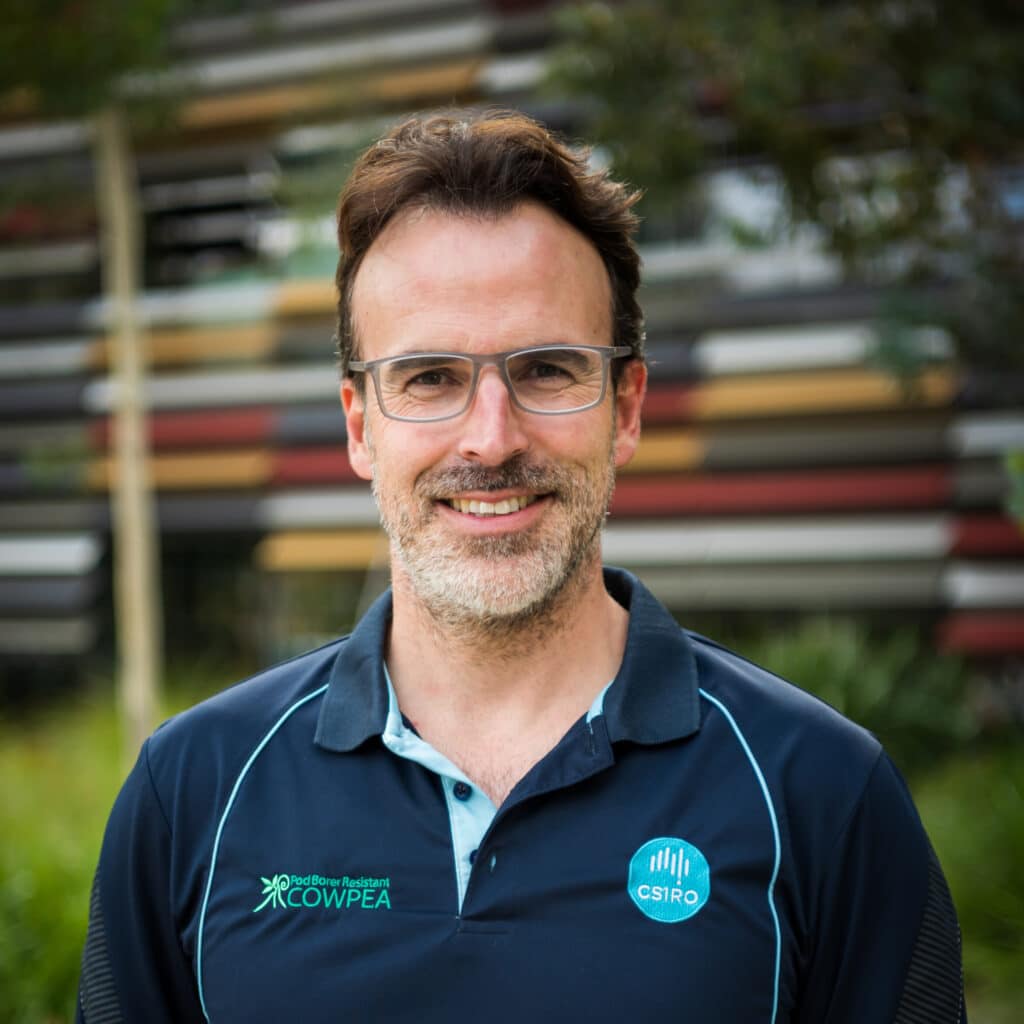
Jose M. Barrero Sanchez
Session: Enabling technologies
Jose completed his PhD in the Miguel Hernandez University, Spain, where he worked on leaf development and on salt-resistance using the model plant Arabidopsis. He came to Australia in 2006 to join the CSIRO where he focussed on seed biology topics, such as the molecular and environmental mechanisms controlling seed dormancy and germination in a variety of crop species including wheat, barley and canola. Currently Jose is leading the Legume Engineering Team, within the Pests and Diseases Group, where he is developing GM cowpeas with in-built protection against insects and with enhanced photosynthetic capacity. His team was awarded with the 2023 CSIRO Chair’s Medal for Science and Engineering Excellence, for developing the Pod-Borer Resistant cowpea, an insect resistant variety now available to farmers in Nigeria and Ghana, bringing food security for smallholder farmers.
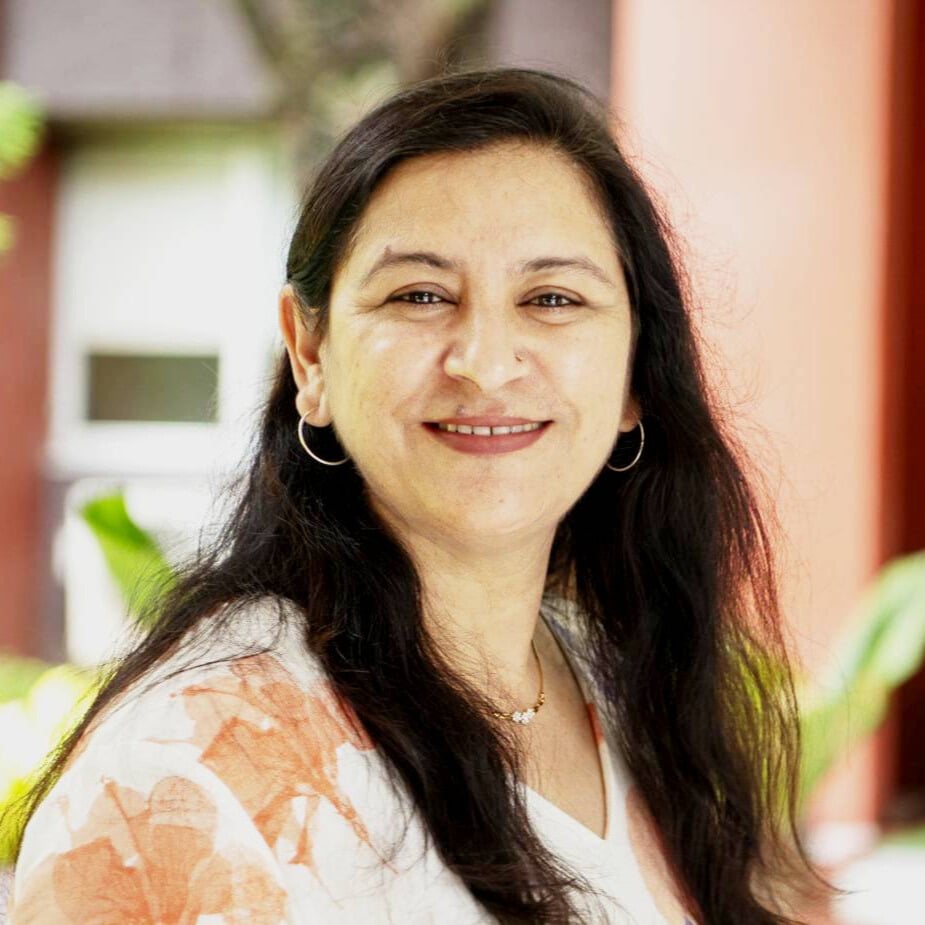
Dr Mamta Sharma
Session: Above ground defences (biotic stress sessions)
Dr Mamta Sharma is Cluster Leader/Principal Scientist – Precision Phenotyping for Biotic and Abiotic Stresses and Nutrition at International Crops Research Institute for the Semi-Arid Topics (ICRISAT) based in Hyderabad, India. With a PhD in Plant Pathology, Dr Sharma has 20+ years of research experience in devising strategies to manage economically important diseases in legumes. She has delivered many research projects on host-plant resistance, epidemiology, integrated management of pest/diseases related to chickpea and pigeonpea with a significant contribution in disease diagnostics, standardizing phenotyping protocols, disease resistant donors, pathogen virulence profiling etc. She is instrumental in establishing multi-institutional and multi-disciplinary “Center of Excellence on climate change research for plant protection” as well as currently leading phenotypic characterization for five important diseases in chickpea mission project of Govt of India. She has a strong national and international collaborative network on legumes and contributed to the release of >30 disease resistant varieties in chickpea and pigeonpea and capacity building of NARS and stakeholders in Asia and Africa. Dr Sharma has published >150 research articles, book chapters, manuals on these topics and guided over 30 MSc and PhD students. She is having an honor to receive recognition for her team-based work such as Doreen Margaret Mashler Award, Women Scientist of the Year from India Today, Outstanding Partnership Award, Outstanding Scientific Article Awards, Promising Young Scientist, Fellow of various Phytopathological Societies etc.

Larissa Ramsay
Session: Bioinformatics for research and breeding
Larissa Ramsay is a Senior Bioinformatics Analyst in Kirstin Bett’s Molecular Breeding Program at the University of Saskatchewan. Larissa worked at Agriculture and Agri-food Canada and the National Research Council (Plant Biotechnology Institute) on a wide variety of projects in multiple species, including TILLING databases, SNP array design, and genome assembly. Larissa joined the LenGen project at the University of Saskatchewan in 2013, completing the first pseudomolecule-level assembly of lentil. Since then, they have generated high quality long-read assemblies of every species within the genus Lens.
Larissa is currently interested in leveraging pan-genomics to evaluate structural diversity, and developing targeted genome graphs for interspecific population analysis. They are also mentoring a new generation of bioinformaticians coming through the Molecular Breeding Program at the University of Saskatchewan.

Dr Francesca Sparvoli
Session: Legume Products: food, fuel, feedstocks and metabolism
Francesca Sparvoli holds a degree in Biology from the University of Milan, where she graduated with honors. She then completed her PhD in Plant Biology and Crop Productivity at the same university. During her PhD, she also gained an international experience at the John Innes Institute in Norwich, UK. Since 1994 she moved to the Institute of Agricultural Biology and Biotechnology, CNR in Milan, where she currently serves as Research Director, leading the Bean research group. Her research interests encompass the improvement of nutritional quality of legume seeds, the development of innovative common bean genetic materials for human and animal nutrition, and the development of biotechnological tools for genetic improvement of common bean and soybean.
She made significant contributions to crop biofortification, particularly through her studies on the phytic acid pathway and the identification of low phytic acid mutants in common beans. Her scientific achievements also include elucidating various aspects of bean seed proteins, contributing to the understanding of their biodiversity, molecular organization, evolution and the exploitation of selected variants for the development of novel food products and ingredients. She has an extensive and successful history in coordinating and participating in projects focused on legumes, nutritional quality and genetic resources.

Assoc Prof Mehdi Kabbage
Session: Plant defence
Mehdi Kabbage is a research group leader and professor in the Department of Plant Pathology at the University of Wisconsin-Madison. He earned an engineering degree from l’Ecole d’Ingenieurs de Purpan in Toulouse, France, and MS and PhD from Kansas State University, focusing on plant-fungal interactions. His research program aims to gain a better understanding of necrotrophic fungal pathogenesis on various crops, including the role of programmed cell death (PCD) in shaping disease outcomes.
